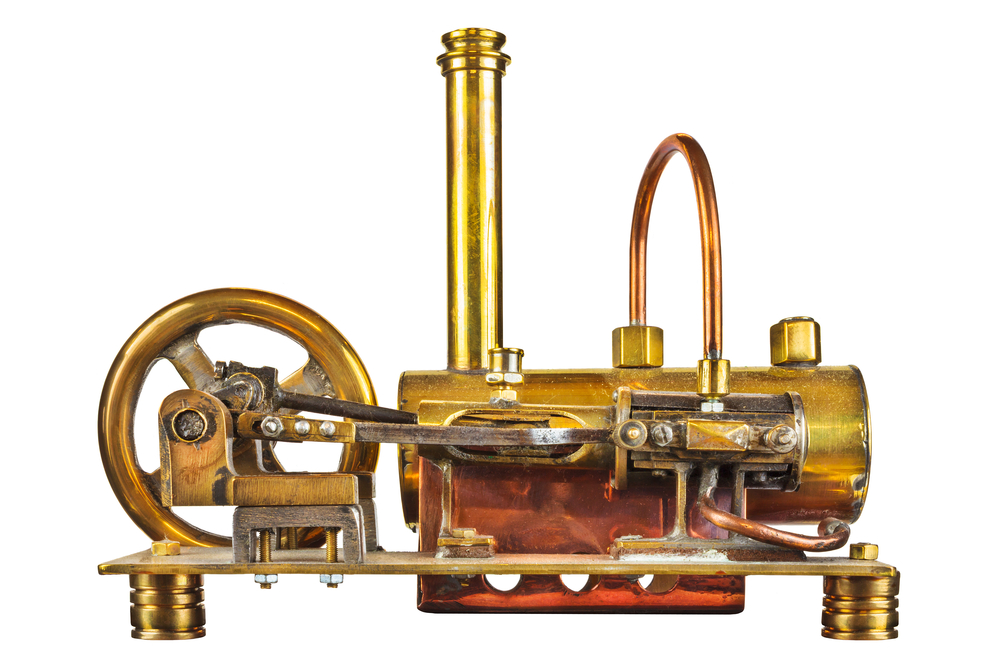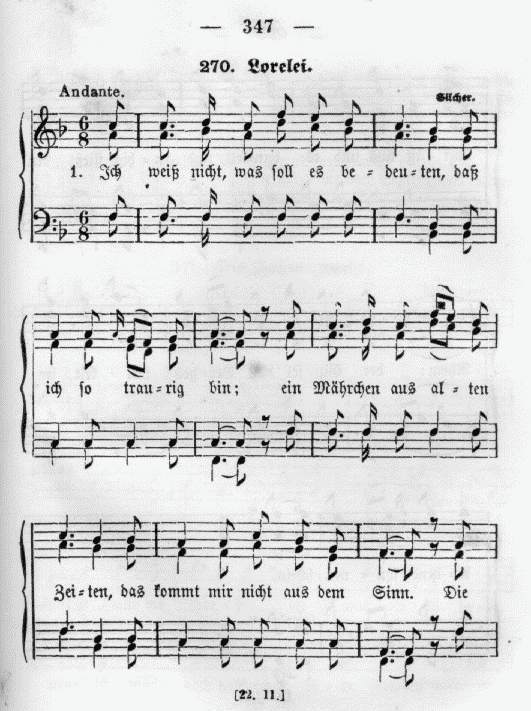
1810 AD to 1830 AD, Psalm 137: Lorelei.
This site was first built in French (see www.147thgeneration.net). The English translation was mainly done using « google translation ». We have tried to correct the result of this translation to avoid interpretation errors. However, it is likely that there are unsatisfactory translations, do not hesitate to communicate them to us for correction.
(for that click on this paragraph)
Summary
This generation of the 1810s and 1820s.
According to our count, this generation is the 137th generation associated with Psalm 137. It is in this Psalm 137 that we therefore find an illustration of the facts of this generation.
Napoleon’s defeat brought about a new European situation. Added to this are the effects of the “Industrial Revolution”.
Emerging German power increases “German Jews’s desire for integration”. This integration often involves conversion. Like the prominent figure of German Jews: Heinrich Heine.
Germany, with its thriving economy and culture, is the new Babylon for Jews.
All the complexity of the relationship between Jews and Germany is integrated into the poem “La Lorelei”, written by Heine.
Talk
New European deal
This generation of the 1810s and 1820s is marked by the end of the Napoleonic adventure and the new definition of Europe that results in a key period of history since this generation also marks the effective start of the industrial revolution.
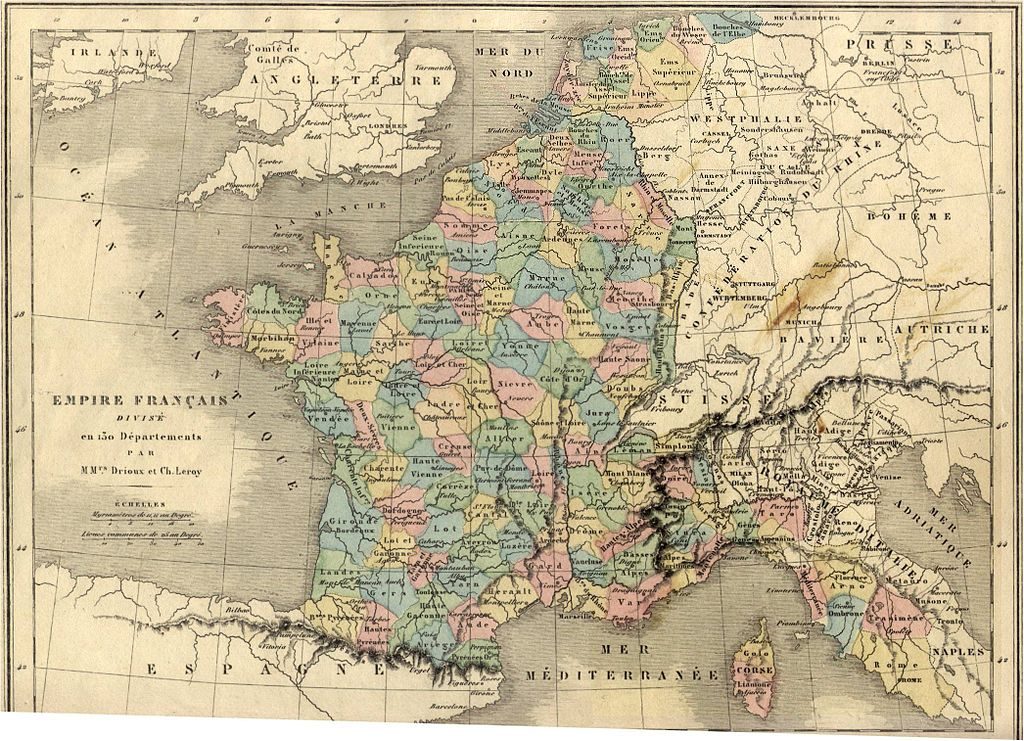
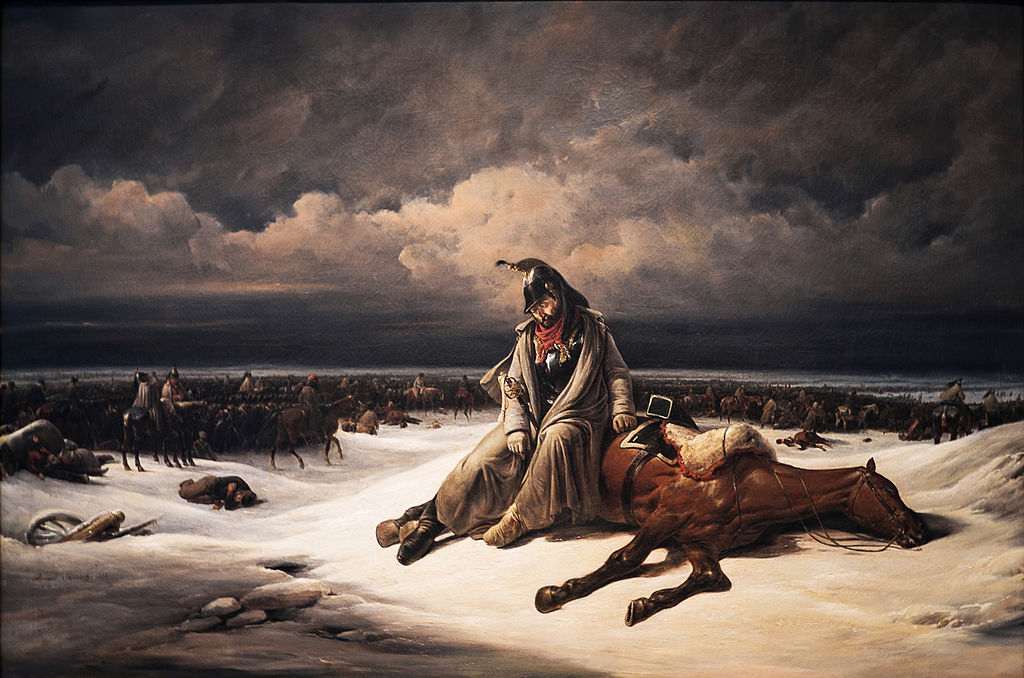
In continental Europe, at the end of the preceding generation, the Napoleonic Empire is at its peak, roughly reproducing that of Charlemagne a thousand years after it. Conducted to wage wars beyond this empire, in Spain and especially in Russia, the Empire collapses rapidly. Despite some recent symbolic victories, Paris falls in 1814 and Napoleon is forced to abdicate. On May 30, 1814, France is brought back to the borders of 1792, the empire will have lasted little.
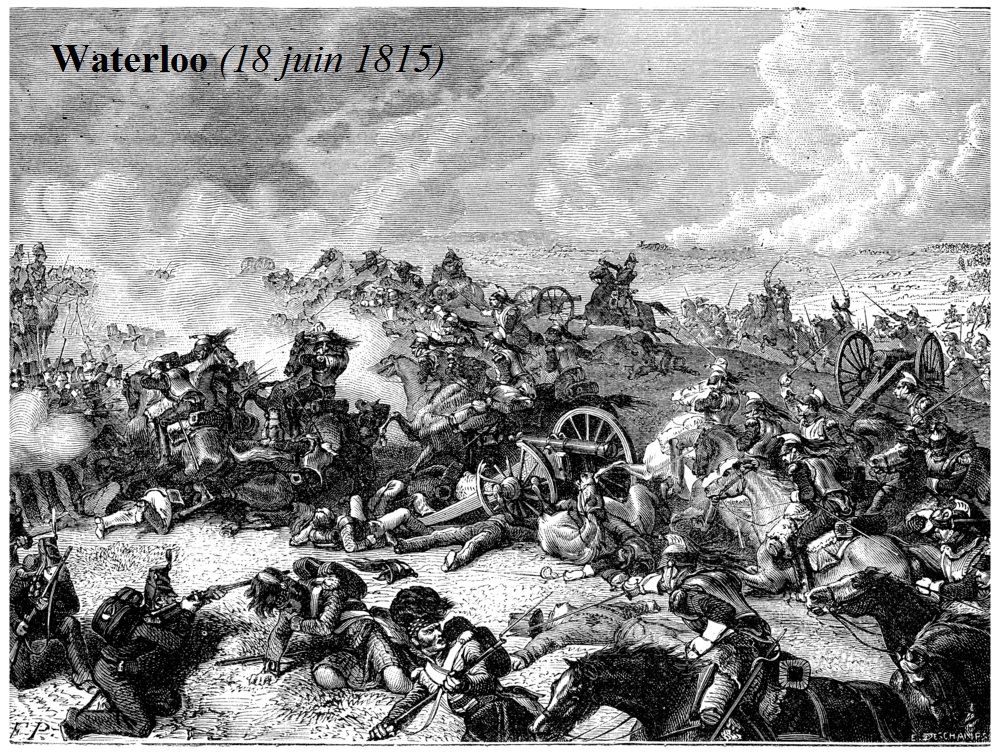
The last attempt to restore the Empire is a complete failure and ends with the defeat of the French at Waterloo on June 18, 1815. This is the end of the Napoleonic adventure.
The Vienna Congress of 1815, imposed by the victors, redraws Europe in contours that will greatly influence the continuation of the history of the old continent.
One of the main opponents to Napoleon, England in addition to the direct results of his victory against France, takes advantage of both the industrial revolution and its maritime power to build a colonial Empire especially in India to the detriment of the French. This will make England one of the main actors in the world history of future generations.
England, however, must abandon its claims in North America unable to defeat the Americans in the War of 1812. France, after digesting the defeat Napoleon, begins to build his colonial empire in 1830 via the capture of Algiers.
The industrial Revolution
England is indeed in full industrial development, a development started in the nineteenth century through the exploitation of the steam engine and the development of metallurgy coupled with the exploitation of coal mines. Despite its commitment in continental Europe in the conflict with France, its development is particularly boosted by financiers.
This generation saw the appearance of the first factories and consequently of the working class with the first strikes in England in 1817 which resulted in the birth of trade unionism. The industrial revolution also allows the United States to become one of the first global players attracting many Europeans in search of a second chance. The United States is the first true democracy in 1828: President Andrew Jackson is elected by popular vote – almost – (slavery is still in effect) universal.
In this generation, it is the German sphere of influence that plays an important role for Judaism.
Important for nineteenth-century Judaism but unfortunately also for the future of European Judaism in the twentieth century whose beginnings are already visible to some visionaries. It will be nearly fifty years before the Jews of the German sphere obtain an emancipation comparable to that obtained by the Jews of France during the French Revolution.
The desire for integration of German Jews
German Jews are already contributing greatly to Germany’s economic growth. But to be full citizens or to have the illusion, one must convert to Christianity. Not that many German Jews pass especially among the elite.
Only conversion allows Jews to seemingly go through the final stages of becoming a full-fledged German citizen. For the generation that interests us, that of the 1810s and 1820s, the history of the Jews of Germany is marked by the aftermath of the Napoleonic adventure.
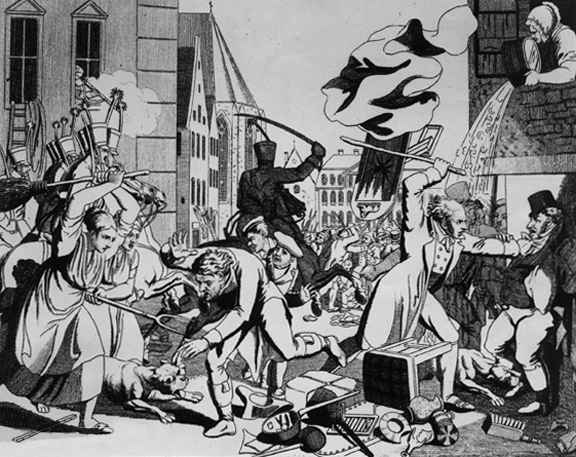
The pogroms of 1819 were added to the reactionary policy in Germany with regard to the Jews. This policy gives them only extremely limited freedom, which is stifling the younger Jewish generations attracted by German society.
One of the first concerns of the German Jewish elite is to rethink Judaism to make it compatible with science.
Others will choose conversion to get the coveted positions.
To understand the beginning of the psalm, one must remember what Babylon’s exile represents. If the first years were formidable, the exile was quickly softened:
- And it was [1] in the thirty-seventh year of the exile of Jehoiachin king of Judah, in the twelfth month, on the twenty-seventh day of the month, that Evil-merodach, king of Babylonia, in the year of his coronation, lifted up the head of Jehoiachin, king of Judah and released him from prison.
- And he spoke with him kindly and placed his throne above the throne of the kings who were with him in Babylon.
- And he changed his prison garb, and he ate meals before him regularly all the days of his life.
- And his meals, regular meals were given him from the king, each day’s need in its day, all the days of his life.
We can almost speak of golden exile.
But whatever the comfort of it, it remains an exile with the melancholy of the country lost or abandoned, the land of Israel, which will be recovered later.
In the present generation of the 1810s and 1820s, the situation of Jews in France as well as in Germany and other European countries is also a golden exile.
Jews profit materially from the economic benefits of the industrial revolution that began. They obtained emancipation in France, a semi-emancipation in England and an embryo of emancipation in Germany.
But in spite of this the Jews are in exile, and they will learn it at their expense, Europe is not the Promised Land.
Heinrich Heine
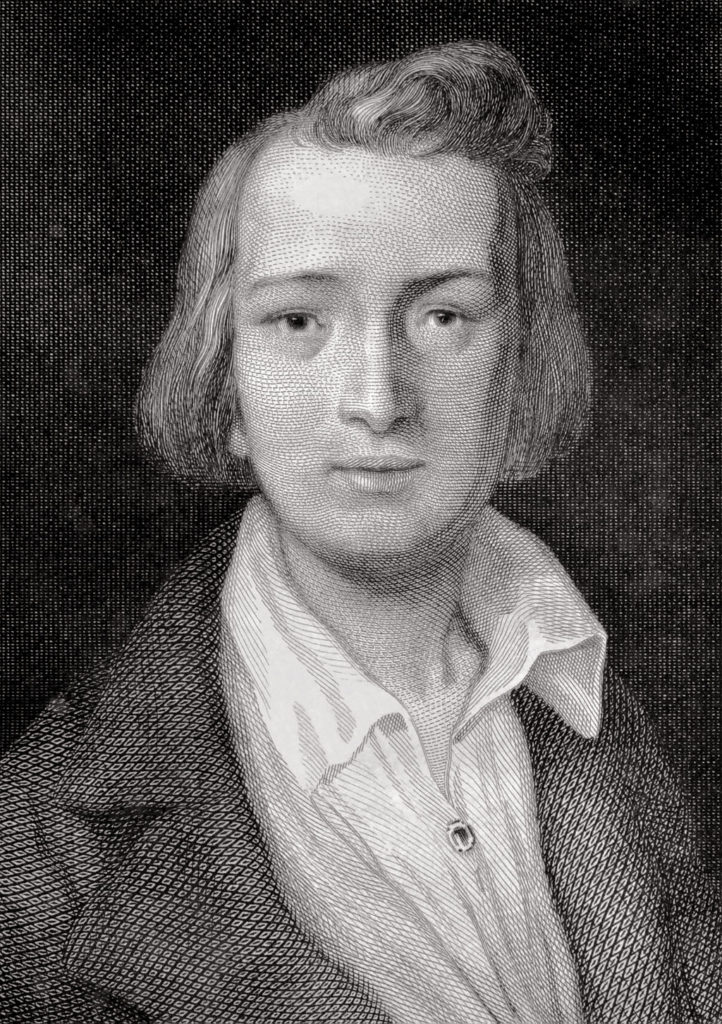
Heinrich Heine (1797-1856), when he leaves Germany for France, compares the Rhine to the Jordan and France to the promised land:
- Already, in 1826 [2], Heine thinks of a stay or even an establishment in Paris, to live there and especially to write more freely: « The French are the chosen people of the new religion; it is in their language that the first gospels and dogmas were written; Paris is the new Jerusalem, the Rhine is the Jordan which separates the country from the liberty of the country of the Philistines. Heine had to cross the new Jordan on May 17, 1831, and arrive in Paris on the 20th.
But the illusion does not last, at the end of his life he will declare, despite his conversion in 1825:
- A profound transformation [3] has taken place in me since my illness, I will make an admission. I am no longer « the freest German after Goethe », « the great pagan number two », which was compared to Dionysus, adorned garlands of the vine, I am no longer a joyful Hellene to live, slightly lopsided and, looking with a disdainful smile on the melancholy Nazarenes from the height of my vitality, I am no more than a poor Jew, sick to death, an ascetic image of misery, an unhappy man!
Germany, new Babylon
The banks of the Rhine have replaced those of the rivers of Babylon. It is this ambiguous position occupied by the Jews in modern Babylon, that of this generation, materialized by the resentments of Heine, which, as we shall see, has a perfect vision of the real situation.
That which is summed up in the beginning of the psalm of this generation:

- By the rivers of Babylon, there we sat, we also wept when we remembered Zion.
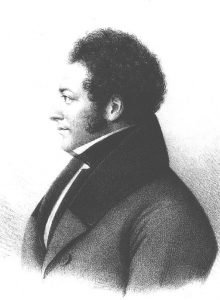
Heine [4] who was a companion of Gans in the Culturverein initially criticized the attitude of the latter during his conversion accusing him of abandoning the ship. However [5], he will not resist temptation and will in turn convert, thinking to obtain, according to his own expression, his « entry ticket » in European culture.
There was at that time a significant wave of conversion (about 3500 cases in the Prussian state, between 1812 and 1846, on an Israeli population of 22000 people) although in general, the Jews integrated into the German society without giving up the traits that made it a collective entity.
Lorelei
Before his conversion, in addition to his position in the Culturverein movement, Heine is a brilliant poet who creates songs that make him famous in Germany. His best known song, which will be set to music by many composers, is the « Lorelei ».
The most famous version is that of the composer Friedrich Silcher, it becomes one of the most popular songs in Germany. The Nazis, because of this popularity can not prohibit this song like the other Jewish works, preferred to indicate that the author was anonymous to make the work lawful.
One of the translations of this one is provided below [6] :
I know not if there is a reason
Why I am so sad at heart.
A legend of bygone ages
Haunts me and will not depart.
The air is cool under nightfall.
The calm Rhine courses its way.
The peak of the mountain is sparkling
With evening’s final ray.
The fairest of maidens is sitting
So marvelous up there,
Her golden jewels are shining,
She’s combing her golden hair.
She combs with a comb also golden,
And sings a song as well
Whose melody binds a wondrous
And overpowering spell.
In his little boat, the boatman
Is seized with a savage woe,
He’d rather look up at the mountain
Than down at the rocks below.
I think that the waves will devour
The boatman and boat as one;
And this by her song’s sheer power
Fair Lorelei has done.
The first verses of Heine’s song are a good summary of the sadness of the Jews then in exile in Germany despite their relative comfort. The Jews are thus torn between the desire to remain faithful to the ancestral religion and that to adhere fully to the German people by abandoning it.
This is summarized in the following of this generation’s psalm:

- On willows in its midst we hung our harps.
- For there our captors asked us for words of song and our tormentors [asked of us] mirth, « Sing for us of the song of Zion. »
- « How shall we sing the song of the Lord on foreign soil? »
Some Jews will try to find a solution to this separation by trying to reform their religion:
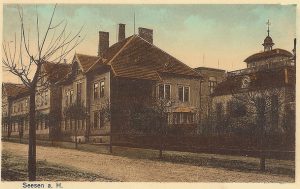
- Israel Jacobson [7] (1768-1828), financial adviser to the King of Westphalia Jerome Bonaparte, is the pioneer of reform. He founded in 1810, in Seesen, Lower Saxony, a synagogue where the prayer is not only in Hebrew but also in German.
- It celebrates at 12 and 13 years the « confirmation » of girls and boys, to model the « rites of passage » of Jewish adolescents on those of Christians.
- And above all, for the first time, the regular use of the organ for synagogal worship is introduced. After the fall of Napoleon, Jacobson came to Berlin and organized a synagogue of this type in his own house. The Prussian government after 1815, hostile to any innovation in politics as in religion, put an end to these unusual prayer meetings.
The psalmist reacts to this initiative in the following psalm:

(extract of the psalm 137 associated to this generation, verses 5 and 6 )
- If I forget you, O Jerusalem, may my right hand forget [its skill].
- May my tongue cling to my palate, if I do not remember you, if I do not bring up Jerusalem at the beginning of my joy.
David’s prediction will unfortunately prove true in future generations. The Dreyfus affair and the onslaught of antisemitism in France at the end of the century will make the Jews of France, and then of Europe, aware that Europe is not the promised land. This reaffirmed by the Holocaust a few decades later.
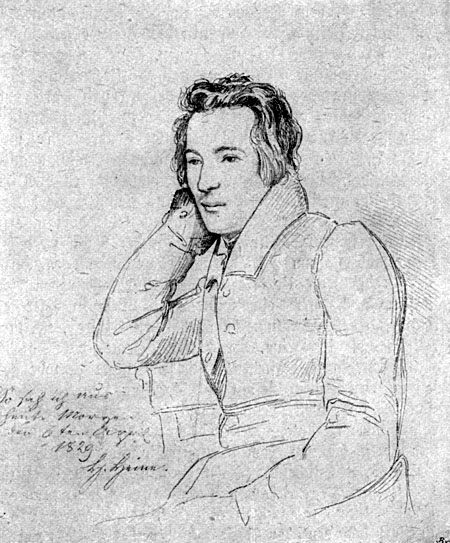
Heine, who at first had agreed to « pay the entrance ticket » by accepting the conversion, had realized his mistake, he decided at the end of this generation to leave Germany for France he think more suited to Jews.
Leaving Germany, the justification of his choice is in fact premonitory about the future of European Judaism:
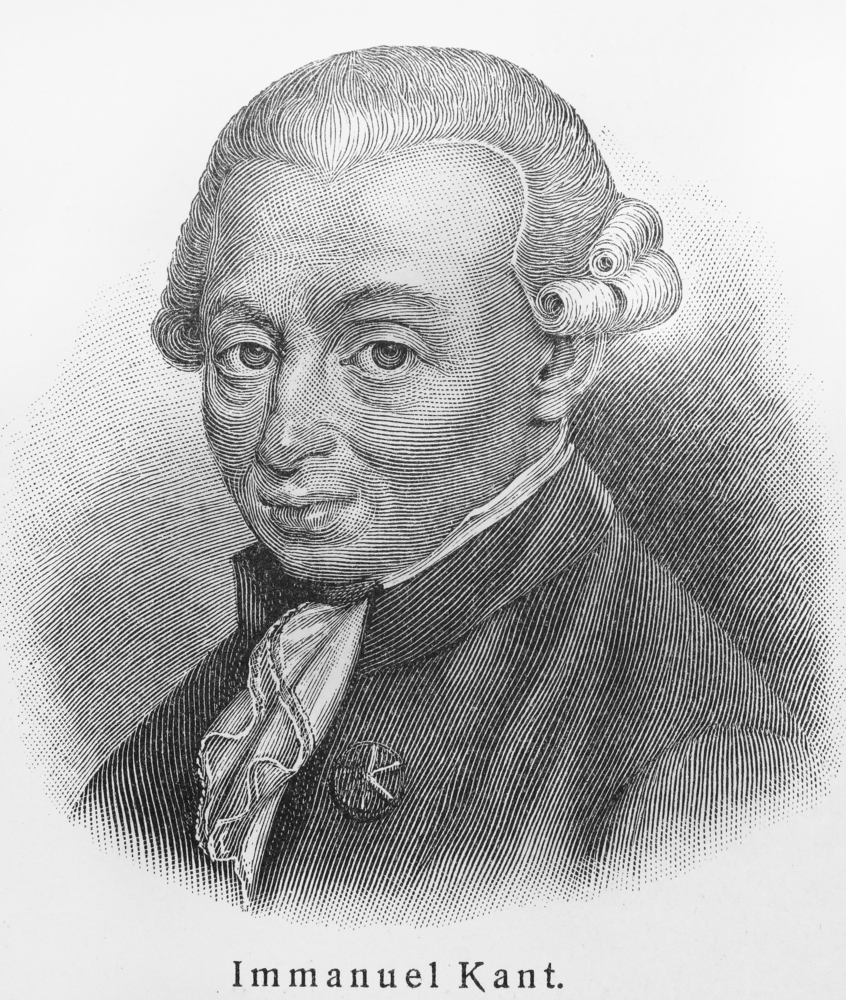
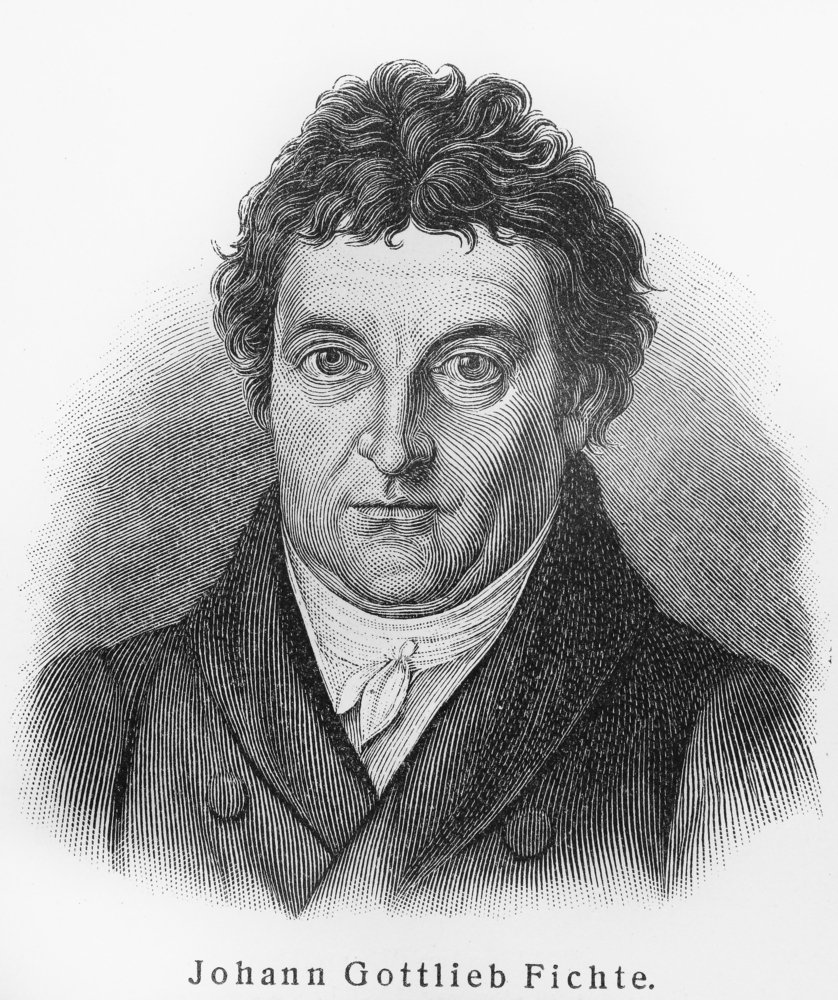
- Yet [8] do not worry, my dear compatriots (Heine addresses the French), no worries, the German revolution will be neither more debonair nor softer because the criticism of Kant, the transcendental idealism of Fichte and philosophy of nature will have preceded it. These doctrines have developed revolutionary forces that are only waiting for the moment to explode and fill the world with dread and admiration. Then will appear Kantists (followers of Kant) who will not want to hear more about piety in the world of facts than in that of ideas, and will upset without mercy, with the ax and the sword, the soil of our European life to extirpate it. the last roots of the past. Will come on the same scene Fichteens (followers of Ficht) armed whose fanaticism and will can not be controlled by fear or interest. (..)
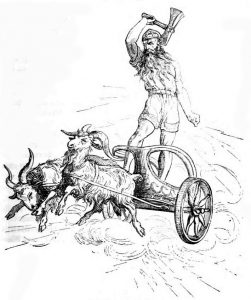
- But the most frightening of all would be the philosophers of Nature, who would intervene by action in a German revolution and identify themselves with the work of destruction. For if the hand of the Kantist strikes hard and for sure, because his heart is moved by no traditional respect; if the Fichteen boldly despises all dangers, because they do not exist for him in reality; the philosopher of nature will be terrible in that he puts himself in communication with the original powers of the earth, he conjures up the hidden forces of tradition, that he can evoke those of all Germanic pantheism and that he awakens in him that ardor of combat that we find among the ancient Germans, and who wants to fight, not to destroy nor even to conquer, but only to fight.
- And the hour will strike. The peoples will group together as on the steps of an amphitheater, around Germany, to watch great and terrible games. I advise you, French, then keep very quiet, and above all beware of applauding.
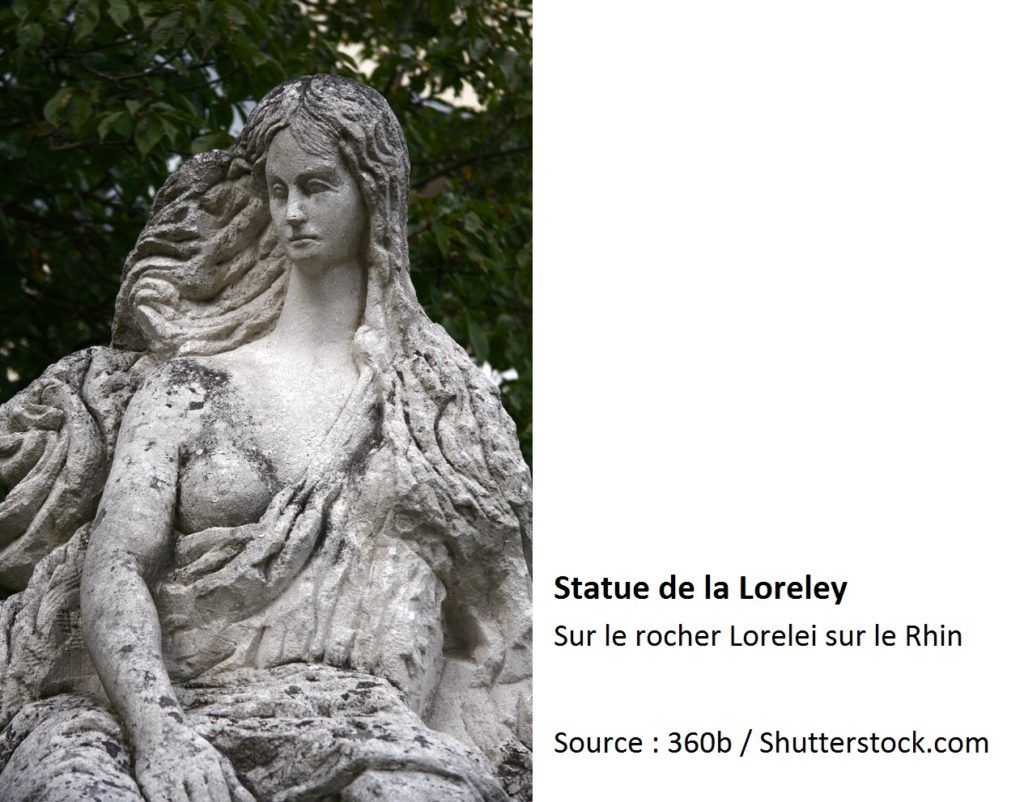

We must return to the famous song of Heine: Lorelei.
This name [9] is that of a rock that rises on the Rhine at 132 meters above the Rhine. It is the narrowest point of the river, the advance of the rock reduced by a quarter the width of the river. The very violent current and the numerous submerged rocks caused many accidents of navigation. The name of Lorelei is also the name of a nymph of the Germanic mythology (in German: Nixe) which attracts the navigators of the Rhine to the perdition by its songs, like the sirens of the Greek mythology like the episode quoted in Ulysses.
Indeed in Greek mythology, the goddess Kirké warns Odysseus in his future approach to the island of Seirenes (sirens: geniuses half bird, half woman).
The Germanic myth takes up the torch of the Greek myth that leaned on an island of the Mediterranean, a rock. This one is in the Germanic myth associated with a rock that fits in the nourishing river of Germany: the Rhine.
Greece represented Edom, Jacob’s twinship. The Greek heritage was taken over by pagan Rome, then by the Christian Roman Empire and then by Europe and is materialized in modern times by the German area.

Heine compares the Rhine to the Jordan when he leaves Germany for France.
On one side the Lord, Rock of Israel and Jordan, river of life for Israel. On the other, the rock of Edom and the Rhine, a river of near death for Israel.
But for the generation that interests us, that of the years 1810 and 1820, and for the generations that will follow, the Jews of the German area and France who will not have the same prophetic visions that Heine will be seduced by the song of Lorelei and will want to make the Rhine their river of life, either on the German side or on the French side.
On both sides, the rejection of the Jews will grow, perhaps more than in previous generations precisely because the Jews of these countries want to become real French or true Germans by sacrificing their faith and their traditions. They will become kind of ghosts in these new modern worlds: they are no longer Jews but will never really be considered German by the Germans, French by the French.
And this is also valid for other European countries: Austria, Hungary, Poland, Russia, etc … Only England may be an exception, but in this country, Jews have less inclined to abandon the ancestral rock.
In France, the antisemitism that grows at the end of the nineteenth century and will be released even more easily during the Dreyfus affair will destroy the hopes of lasting integration of the Jews of France. In the German area, Pan-Germanism, which emerges durably at the end of the Napoleonic epic, will definitively make Jews foreigners on German soil. This will have a lasting impact on the behavior of German Jews who, like Heine in the first part of his life, will think they will buy their entry ticket into Germanity by converting to Christianity.
This ticket will never be validated. The Judeo-German symbiosis is a myth that only Jews believe. The Germans temporarily accept the Jews to accompany them in the intellectual, economic and industrial revolution of the nineteenth century but it is only temporary. At the first storms, the Germans will vomit their Jews, especially those who have had the audacity to believe themselves German.
Heine agreed to sing a hymn in exile, as he was asked.
He first expresses his sadness and then recalls the rock in competition with the rock of the Lord in this land of exile. A pitfall for Jews who think they can access nationality in the European powers of the new industrial Europe. In the image of the sailors who is charmed by their songs, like the songs of the Lorelei and those of the Seirenes of the Odyssey, they will soon sink. They will stop sailing in European lands and in particular in the territories of Lorelei, the German territories.
But Lorelei is above all a pitfall for Europe itself, and especially for the Germans and the peoples associated with them. The Lorelei is the rock that impedes the course of the Rhine that creates turbulence, one that seduces Europeans in the quest for their identity with the awakening of nationalism that is initialized to this generation.
In particular [10], it is to this generation of the 1810s and 1820s that the myth of the Aryan race is created based on a unity of languages. Thus the Aryan languages are related to those of the Persians, Latins, Celts, Slavs, Germans, Armenians or Greeks. They form a family qualified as Indo-European. We asked very early what could be the mother tongue of this family.

Linguists like William Jones, in the late eighteenth century, noticed the « perfect » aspect of Sanskrit, compared to Greek or Latin. The idea that Sanskrit was the mother tongue then made its way. As its speakers were called the Aryans, the term was applied to the entire Indo-European family. That of Indo-European appeared for the first time in an article by Thomas Young, in the Quarterly Review in 1813, but it is that of Aryan that prevailed throughout the nineteenth century.
This use of the term Aryans declined during the first half of the twentieth century. It was then that the Nazis decided to use it for their purposes. They needed two conditions to develop their racial theories. The first was provided by Count Joseph Arthur Gobineau, in his essay on the inequality of human races, published in 1855. He showed that the Aryans had originally formed a race pure, white and blonde. He thought, however, like everyone else in his day, that this people had lived in Asia. This was the logical consequence of the theory that made Sanskrit the mother tongue. The second condition was to place the home of these Aryans in Germany. This idea was issued by Ludwig Geiger in 1871 and imposed by Karl Penka between 1883 and 1891.
Always about Sanskrit as the mother tongue of all the languages of the world (« known » or « civilized »):
- The kinship [11] between the European languages and Sanskrit had already been noted in the past, but the times were not ripe, the discovery fell back into oblivion. It was otherwise when in 1786 the Englishman Williams Jones pointed out in his « Asiatic Researches » the structural affinity that exists between Sanskrit, Greek, Latin, « Gothic » and « Celtic », in doing so, he thought he could attribute to the Indian idiom precellence, « an admirable structure, more perfect than that of the Greek, richer than that of the Latin, and more exquisite than those of the one as the other. » The philosophy of the time welcomed this judgment which was taken up and amplified by the Schlegel brothers, the founders of ideology in Germany. Around 1805, Schlegel wrote that the Indian language was older than the Greek or Latin languages, not to mention German or Persian … the Indian distinguishes himself, he added, by the depth, the clarity, the calm and the philosophical turn; he also supposed that the Indian was « the oldest derived language », the closest, therefore, « of the primitive language from which all languages are derived ». In the same book (« Essay on the Language and Philosophy of the Indians ») he invented the term « Aryans » to designate the invincible conquerors descended from the Himalayas to colonize and civilize Europe. August Wilhelm Schlegel, resuming an idea of Leibniz on the usefulness of philology for the study of the origin of peoples, also spoke of « the origin of Hindus, » and proclaimed the superiority of their language over Semitic languages. At the same time, the philosopher Schelling criticized the imperfections of Sacred Scripture which, he felt, did not support the comparison « in true religious content » with Indian sacred books. « It was then a kind of intoxication, wrote a century later a historian of Gobinism, modern civilization thought to have found his family titles, lost for many centuries, and Aryanism was born … »
Europeans, and especially the German sphere, are creating a new story.
The Himalayas are for the theorists of the Aryan race the home of the original European people united by a unique language Sanskrit is also the roof of the world. it is of course comparable to the Tower of Babel built to reach the sky by a people united around a single language.
As a worthy « daughter of Babel« , the German nation, through the inheritance that it defines from the original people of the Himalayas and the mother tongue, Sanskrit, will try to impose the power of its tutelary rock on the world whose peoples will be either enslaved to the Germanic people or exterminated.
If the Jews will be victims of the future effects of these European nationalisms, the Europeans themselves will also pay a heavy price for the fascination of this tutelary rock in the heart of the Rhine.
Thus Heine predicts at the end of his hymn the future of the European peoples and in particular those of the German area under the influence of the Lorelei:
In his little boat, the boatman
Is seized with a savage woe,
He’d rather look up at the mountain
Than down at the rocks below.
I think that the waves will devour
The boatman and boat as one;
And this by her song’s sheer power
Fair Lorelei has done.
Wars will follow each other in Europe and in the 20th century, the two world wars in addition to the planned extermination of the Jews of Europe will generate tens of millions of deaths in Europe.
The skulls of the descendants of the German people who allow themselves to be seduced by the enchanting songs of Pan-Germanism, symbolized by the Lorelei, will shatter against this tutelary rock.
The conclusion of this psalm echoes both the premonitory Song of Heine and the future of Europe centered on Germany:

- Remember, O Lord, for the sons of Edom, the day of Jerusalem, those who say, « Raze it, raze it, down to its foundation! »
- The long course of modern European antisemitism will end with the First World War, Nazism with the massacres of the Second World War. The Nazis will try to erase all traces of Judaism and the Jews (the foundations of Jerusalem).
- O Daughter of Babylon, who is destined to be plundered,
- Nazism wanted to give the world to the Aryan race, assimilated as a European nation to a Babel girl, Babel no longer in Babylon but in the highlands of the Himalayas with Sanskrit as their universal original language. Like the Tower of Babel, the building that the Pan-Germanists want to build is also destined to ruin.
- Praiseworthy is he who repays you your recompense that you have done to us. Praiseworthy is he who will take and dash your infants against the rock.
- The result of this adventure is the Holocaust for the Jewish people. The psalmist demands revenge. The rock on which the German people have trusted has already been a deadly stumbling block for the peoples of the German sphere and for Europe. However, the destruction of the last two world wars is not enough for the psalmist who asks more for the view of the times used.

[1] Melachim II – II Kings – Chapter 25, verses 27 to 30.
[2] Excerpt from the Larousse website on Heinrich Heine: http://www.larousse.fr/encyclopedie/personnage/Heine/123480
[3] Renée Neher-Bernheim: « Jewish History of the Revolution in the State of Israel ». Quote from « Heinrich Heine, Rectifications, April 15, 1849, unpublished translation of André Neher. (French: « Histoire juive de la Révolution à l’état d’Israël ». Citation de « Heinrich Heine, Rectifications, 15 avril 1849, traduction inédite d’André Neher. (p. 197,198) )
[4] Maurice Ruben Hayoun: « The Enlightenment of Cordoba in Berlin, volume 2 ». Chapter: « The Survival of Judaism Through Science? The Culturverein « . (French: « Les Lumières de Cordoue à Berlin, volume 2 ». Chapitre : « La survie de judaïsme par la science ? Le Culturverein ». (p. 288) ).
[5] Enzo Traverso: « The Jews and Germany ». (French: « Les Juifs et l’Allemagne ». (p. 28) )
[6] Heinrich Heine: « The Book of Songs« . ( Translated by A.Z. Foreman, see: http://poemsintranslation.blogspot.com/2009/11/heinrich-heine-lorelei-from-german.html ). (French: « Livre des chants », Recueil : « Le retour, chant 2 », (pp. 97-98) ); Written in 1823-1824.
[7] Renée Neher-Bernheim: « Jewish History of the Revolution in the State of Israel ». (French: « Histoire juive de la Révolution à l’état d’Israël ». (p. 168,169) )
[8] Henri Heine: « On Germany ». Chapter « From Kant to Hegel ». (French: « De l’Allemagne ». Chapitre « De Kant à Hegel ». (p. 163) )
[9] According to Wikipedia.
[10] According to Wikipedia, page « Aryans ».
[11] Leon Poliakov: « History of antisemitism, 2 – the age of science ». (French: « Histoire de l’antisémitisme , 2 – l’âge de la science ». (p. 164-165) )

